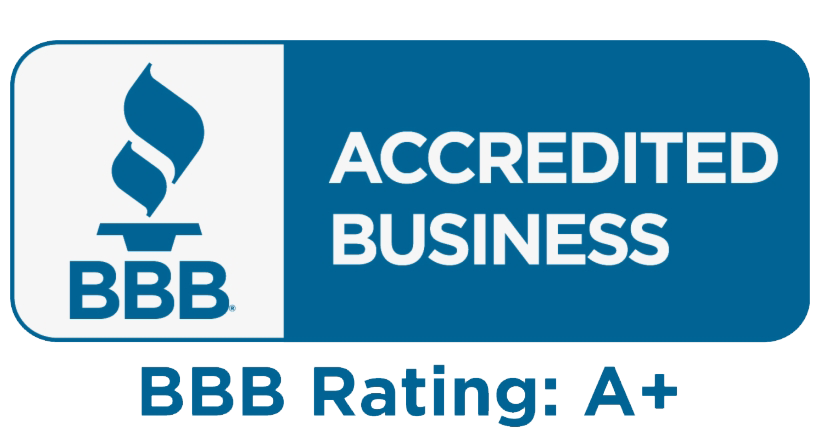Blog

Is Asphalt Cheaper Than Concrete? Cost Comparisons and Window Installation Benefits
When considering whether to use asphalt or concrete for your next driveway or paving project, one of the first questions that likely comes to mind is, Is asphalt cheaper than concrete? While cost is an important factor, there are many other elements to consider, such as durability, maintenance, and climate suitability. This blog will explore whether asphalt is indeed the more budget-friendly option, while providing a complete breakdown of how these two materials compare.
This guide provides a clear comparison of asphalt and concrete while highlighting how window installation can further improve your home’s functionality and aesthetic.
Window Installation: The Perfect Pair for Outdoor Upgrades
While deciding on the right material for your driveway is important, don’t overlook the benefits of window installation for enhancing your property. Modern, energy-efficient windows increase curb appeal, improve natural lighting, and reduce energy costs. When paired with a new driveway, they create a harmonious and upgraded look for your home, inside and out.
Asphalt vs. Concrete: The Price Comparison
Is Asphalt Really Cheaper?
On the surface, asphalt is typically less expensive than concrete when it comes to initial installation costs. On average, you can expect to pay around $3 to $7 per square foot for an asphalt driveway. In comparison, a concrete driveway can cost between $5 to $12 per square foot. Based purely on these figures, asphalt tends to be the cheaper choice upfront.
However, it’s important to consider the bigger picture. While asphalt may be less expensive initially, concrete has a longer lifespan, potentially making it a better long-term investment depending on your needs and the specific environment.
Why Is Asphalt Cheaper?
There are a few reasons why asphalt generally comes with a lower price tag than concrete:
- Material Composition: Asphalt is made from bitumen, which is less costly than the cement used in concrete. The production process is also less energy-intensive.
- Faster Installation: Asphalt can be installed more quickly than concrete. It takes just a few days to install and cure, while concrete can take a week or more to fully set. This faster installation reduces labor costs for asphalt projects.
Key Factors to Consider Beyond Cost
1. Durability and Longevity
While asphalt may cost less initially, concrete typically lasts longer. A well-maintained concrete driveway can last 30 to 40 years, whereas an asphalt driveway usually lasts 15 to 20 years before needing major repairs or replacement.
Asphalt is more prone to cracking and deteriorating over time, especially in areas with extreme temperature fluctuations. It expands and contracts with changes in weather, leading to cracks that need to be repaired periodically. On the other hand, concrete is more resistant to temperature changes but may still develop cracks over time, particularly if it is exposed to freezing and thawing cycles.
Real-Life Example: I once worked with a homeowner who installed an asphalt driveway because of its affordability. However, within just 10 years, they had to resurface it twice due to weather-related damage. By contrast, a neighbor who installed concrete paid more initially but avoided those recurring maintenance costs.
2. Maintenance Requirements
When it comes to maintenance, asphalt requires more frequent upkeep than concrete. Asphalt driveways need to be resealed every 3 to 5 years to keep them in good condition and prevent cracking. Without regular sealing, the lifespan of an asphalt driveway can be significantly reduced.
Concrete, on the other hand, requires less maintenance overall. While cracks may appear over time, they’re typically smaller and less frequent compared to asphalt. Concrete can also be resealed for added protection, but this is usually required less often—about every 5 to 10 years.
- Asphalt Maintenance: Resealing every few years, fixing cracks, and resurfacing every decade.
- Concrete Maintenance: Occasional sealing, power washing, and crack filling.
Expert Insight: “If you're willing to invest in regular maintenance, asphalt can provide great value over time, but homeowners who prefer less upkeep usually lean towards concrete,” says David Peterson, a driveway contractor with over 20 years of experience.
3. Climate Considerations
One of the most critical factors to consider when choosing between asphalt and concrete is your local climate.
- Hot Climates: Asphalt can soften and become sticky in high temperatures, which can lead to quicker wear and tear. Concrete, on the other hand, stays cool and maintains its integrity in hot weather.
- Cold Climates: Asphalt fares better in cold weather because it is more flexible and can handle freezing temperatures without cracking as easily as concrete. Concrete can be more susceptible to damage from freeze-thaw cycles unless specially treated.
If you live in a region with extreme temperature changes, you may need to weigh how well each material will hold up in those conditions.
4. Environmental Impact
Both asphalt and concrete come with their environmental considerations.
- Asphalt: Asphalt is made from petroleum, a non-renewable resource. However, asphalt can be recycled, and recycled asphalt is often used in new projects, which helps reduce waste. It is worth noting that asphalt surfaces can absorb heat, contributing to the urban heat island effect in cities.
- Concrete: Concrete is made from cement, which requires a significant amount of energy to produce, contributing to its carbon footprint. However, concrete is longer-lasting, meaning fewer resources are needed for repairs and replacements over time. Concrete can also reflect heat, making it a more eco-friendly choice for reducing heat absorption.
A Closer Look at Installation Times
If you're working on a time-sensitive project, installation time may be a deciding factor. Asphalt can be installed relatively quickly, sometimes within a few days, and you can start using the surface within 24 to 48 hours.
Concrete, on the other hand, requires more time to cure. While it can be installed in a day or two, it typically takes 7 to 10 days before it is ready for regular use. If you’re in a rush to complete your project, asphalt’s quicker turnaround might be appealing.
Pro Tip: If you’re installing a large commercial parking lot or driveway, asphalt’s faster curing time can be a major advantage, reducing downtime and allowing you to reopen the space quickly.
Aesthetic Appeal and Customization
When it comes to design flexibility and curb appeal, both materials offer different advantages.
- Asphalt: Asphalt has a smooth, dark finish that looks clean and professional. However, it’s limited in terms of customization, as it only comes in black. For homeowners looking for a sleek, minimalist look, asphalt works well.
- Concrete: Concrete offers more versatility in design. It can be stained, stamped, or colored to create a variety of patterns and finishes. You can even mimic the look of brick, stone, or tile with stamped concrete, making it a better choice for those looking to boost curb appeal.
Pros and Cons: Asphalt vs. Concrete
Asphalt Pros:
- Lower initial cost
- Quicker installation and curing time
- More flexible in cold climates
- Easily repaired
Asphalt Cons:
- Shorter lifespan (15-20 years)
- Requires more frequent maintenance
- Susceptible to heat damage in hot climates
- Limited design options
Concrete Pros:
- Longer lifespan (30-40 years)
- Low maintenance requirements
- More design versatility
- Better suited for hot climates
Concrete Cons:
- Higher upfront cost
- Longer installation time
- Can crack in freezing temperatures
Conclusion: Which Is the Better Option for You?
So, is asphalt cheaper than concrete? Yes, in terms of initial cost, asphalt is the more budget-friendly option. However, if you’re thinking long-term, concrete may end up saving you money due to its durability and lower maintenance requirements.
Ultimately, the best choice depends on your specific needs, budget, climate, and how much time and effort you’re willing to invest in maintenance. If you’re looking for a quick, affordable solution, asphalt may be the way to go. If you want a long-lasting, customizable surface with minimal upkeep, concrete is a solid investment.
By weighing the pros and cons of each material and considering your project’s unique circumstances, you can make an informed decision that fits both your budget and your lifestyle.








